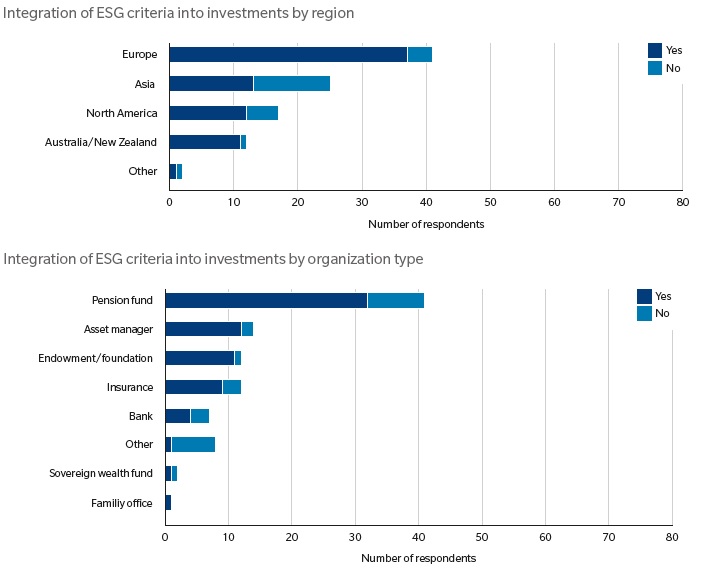Incorporating environmental, social, and governance (ESG) criteria into a fund’s investment process has a positive direct effect on risk-adjusted returns, according to a survey of asset owners.
Swiss alternative investments specialist LGT Capital Partners and global consultant Mercer surveyed 97 institutional investors from around the world, including decision makers for pension funds, foundations, and endowments. Of those, 57% said their use of ESG criteria had had a positive impact on performance. Only 9% said they felt it detracted from returns.
“Long-term returns are more driven by avoiding bad investments than by picking all the winners.” —Tycho Sneyers, LGT Capital Partners“This shows that ESG analysis has moved beyond ethical concerns and has firmly found its place as a risk and investment management topic,” said Tycho Sneyers, managing partner at LGT.
He added that asset owners increasingly see ESG “as a valuable risk management tool.” “Long-term returns are more driven by avoiding bad investments than by picking all the winners,” Sneyers said, so screening for ESG risks is often seen as beneficial.
More than two-thirds of investors questioned said the primary reason for incorporating ESG into investment decisions was “reputational risk management.”
“It is an especially important topic among investors in the Nordic region, Switzerland, and the Benelux countries,” LGT and Mercer wrote in their report, “which likely reflects the pressures for increased transparency and public reporting on investments for many institutional investors in the region.”
In a separate survey by LGT, the firm questioned the private equity and hedge fund managers it uses on their engagement with ESG criteria. It found that more managers in both sectors are incorporating ESG into their investment processes due to investor pressure.
LGT rated 114 private equity managers by their engagement with ESG from one (“excellent”) to four (“poor”). The latest survey, the third conducted by LGT, found 42% of managers rated “good” or “excellent”, compared with 34% last year.
“Private equity managers have taken ESG to heart and are making good progress,” said Sneyers, but with the caveat that “ESG is very new to alternatives,” so changes may take some time to emerge.
In hedge funds, LGT rated three managers as “excellent”—the first time any manager has achieved this rating. Werner von Baum, also a managing partner at LGT, said the three firms were at the larger end of the scale, demonstrating that managers with more assets and a more global client base were more likely to engage with ESG criteria.
The survey showed major differences in the take-up of ESG concerns in investment processes between funds based in Europe, the US, and Asia. European funds were by far the best rated by LGT, with 46% ranked “excellent” or “good”, and 23% as “poor”, indicating little or no engagement with ESG.
In the US, by contrast, 53% of funds were rated “poor”, and just one in five earned “excellent” or “good” ratings.

Source: LGT Capital Partners, Mercer
Related Content: PE Firms Feel Investors’ Push on ESG Concerns & Europe: Your Top Destination for Sustainable Investment
